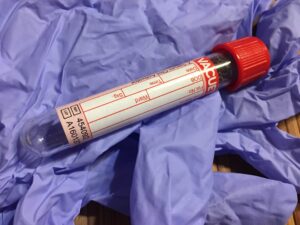As more green-conscious communities have taken aim at reducing the amount of waste and overcoming the logistical challenges of managing waste, many are looking at the brave new ideas that have cropped up from what some would consider the most unexpected of places.
Our healthcare facilities have always been considered pillars of many a community and are constantly dealing with the challenges of operating in a way that keeps our neighbors healthy and our environment livable. In many cases, they are the first responders for many environmental issues that adversely affect the health of our communities.
One of the largest not-for-profit health care systems, Providence St. Joseph Health (operating in seven Western states) recognized its potential to create a less wasteful and more environmentally mindful community by partnering with a diverse family of organizations to recover unused medical supplies that would typically go to a landfill.
Providence operates a Medical Surplus Recovery Organization (MSRO). Through a medical supply warehouse in Lacey, Washington, surplus medical supplies and equipment are recovered and shipped domestically and internationally to help people get the healthcare equipment that they desperately need.
“Each year, U.S. healthcare facilities throw away thousands of tons of unused or recyclable medical products and equipment. Providence St. Joseph Health System is helping to turn a problem of waste versus need into a solution of healthcare resources for economically developing countries,” said Julienne Livaudais who is the Volunteer Outreach Coordinator at Providence St. Joseph Health Global Partnerships.
The Providence MSRO received over 304,269 lbs. of surplus goods in 2018. More than 20 tons of supplies were recovered and donated to programs in need by the Providence MSRO to non-profit organizations, both domestically and internationally.
“We were able to donate 85,567 pounds internationally and 24,592 pounds domestically with approximately 65,308 pounds recycled in 2018,” said Livaudais.
The MSRO program has diverted thousands of pounds of medical supplies and equipment from going to the landfill while supporting over 106 international organizations taking supplies to over 25 countries, in 2018.
Donations are also made to local non-profit organizations. “Often, we receive items that cannot be used to support our international partners, these items stay local and are donated to the 30+ local organizations we partner with in just Washington state alone.” said Livaudais.
The program was started in 1989 and is still supported by employees, volunteers and other community partners throughout the healthcare industry. Providence St. Joseph Health System works with its partners to educate and encourage staff to collect and donate supplies and equipment within its facilities.
When surplus is received it is sorted by a devoted team of volunteers. The program then works closely with clinicians and partners to ensure they receive the supplies requested thus enabling their continued support of the international communities being served. Often partners pick up their own requested orders which are filled by the MSRO staff. In 2018, over 374 new volunteers donated their time which totaled 3,478 hours to ensure that supplies were sorted, recycled, and going to the correct location.
Locally, volunteers distribute requested supplies that cannot be picked up by smaller local partners.
Providence St. Joseph Health Systems Global Partnership’s MSRO team works to supply skilled clinicians with the medical supplies needed by non-profit organizations domestically and internationally. Last year alone, they were able to help in over 25 countries with supplies to International partners in places like Central America, Southeast Asia, and Africa and have reached over 100 countries since launching in 1989. By providing medical supplies free of charge, this allows the clinics and programs to use the funds for other important services within their communities.
“Some of our partners work to improve mobility with access to equipment and therapies, some work strictly to promote maternal and child healthcare, while others support local clinics with education, training, and supplies to build a stronger community. The treatments depend on the focus of the organization and where their teams and resources are going,” Livaudais said.
Here is a look at some of their international partners:
-
One Nurse at A Time
-
Rotaplast International
-
Guatemala, Honduras, Nicaragua, Haiti, Dominican Republic, India, Sri Lanka, Syria, Uganda, Kenya, Nigeria, Ghana, Malawi, Mexico, Côte d’Ivoire, Philippines are a few countries where our supplies have gone.
-
Multiple domestic programs, including free care clinics in various communities.
Providence St. Joseph Health System wants to establish ongoing donation partnerships with hospitals, healthcare facilities, physician practices, and manufacturers. To start an effective collection and recycling program click here to learn more or contact [email protected]
Follow us on Instagram at @psjh and @psjh.global.partnerships.
This post was created in partnership with Providence St. Joseph Health. All opinions are my own. I would like to thank them for their generosity which allows me to research and deliver content based on the latest environmentally-friendly developments and trends.





